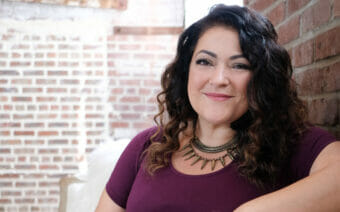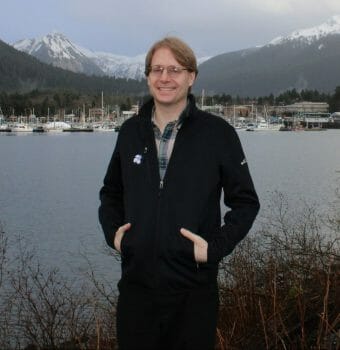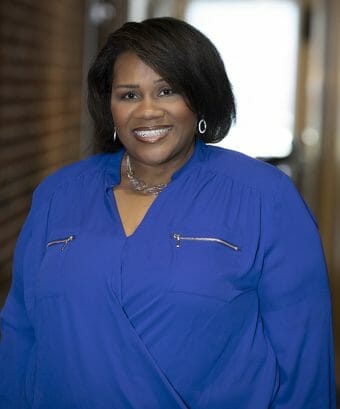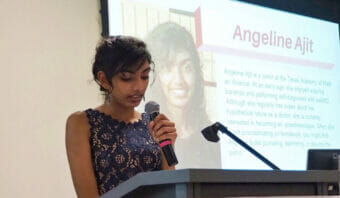Racial Healing: Understanding Racial Identity, Systemic Racism, and How to Become a Racial Ally
Education is a key step in the fight to end racism. On Jan. 12, 2021, Anneliese A. Singh, Ph.D., LPC, author, professor and Associate Provost for Diversity and Faculty Development at Tulane University, helped raise our race-consciousness by challenging stereotypes, reframing the history of racism and its impact on our lives, and share why healing from racism is an integral part of dismantling it, along with speaker Doug Osborne, M.A., health educator, Southeast Alaska Regional Health Consortium and moderator Jennifer Nash, vice president, corporate solutions and capacity building, Points of Light. Attendees learned strategies for self-reflection, how oppression happens and the steps to becoming a racial ally.
Dr. Singh shared the following key take-aways:
- Seek the Truth about Racism. Learn the history of how systemic racism – specifically anti-Black racism and indigenous erasure – impacted the land where you live, the workplace and/or school you attend, and the history of our country.
- Take Action on Systemic Racism Locally. Share your developing knowledge about systemic racism with others to spark crucial conversations about dismantling racism right where you live and work – and cultivate humility as you do so. Develop accountability groups and strategic plans to address racial inequities with clear outcomes delineated. Make sure you are centering actions on anti-Black racism and indigenous erasure.
- Engage in Everyday Reparative Work with Racism. Make sure your everyday work on dismantling racism where you live and work is tied to reparations. There are real and persistent resource gaps and accessibility barriers for financial and other needs BIPOC people have as a result of intergenerational racism. Reparations can and should come in the form of money and resources, and should also show up in the everyday actions of believing BIPOC folx when they share about their experiences of racism, and serving as sponsors (not saviors!) for BIPOC folx by removing barriers and increasing access within your organizations and communities.
Watch the Conversation On-Demand
Conversation Resources
- This conversation is based on Dr. Singh’s book, The Racial Healing Handbook: Practical Activities to Help You Challenge Privilege, Confront Systemic Racism, and Engage in Collective Healing.
- The Racial Healing Handbook: Reading Group Guide
- The Racial Healing Handbook: Worksheets
- Anneliese Singh’s Website
- Sitka Decolonization Dialogue Project 108
- Stamped from the Beginning by Ibram X. Kendi
- The Warmth of Other Suns: The Epic Story of America’s Great Migration by Isabel Wilkerson
- This Book Is Anti-Racist: 20 Lessons on How to Wake Up, Take Action, and Do The Work by Tiffany Jewell
Meet Our Speakers
Anneliese Singh, PhD, LPC, (she/ they)
Professor and Author
Dr. Anneliese Singh is a Professor and Associate Provost for Faculty Development and Diversity/Chief Diversity Officer at Tulane University. Her scholarship and community organizing explores the resilience, trauma, and identity development experiences of queer and trans people, with a focus on young people and BIPOC people. Anneliese is the author of The Racial Healing Handbook: Practical Activities to Help You Challenge Privilege, Confront Systemic Racism, and Engage in Collective Healing, and The Queer and Trans Resilience Workbook.

Anneliese is co-founder of the Georgia Safe Schools Coalition and the Trans Resilience Project. Anneliese passionately believes in and strives to live by the ideals of Dr. King’s beloved community, as well as Audre Lorde’s reminder that “without community, there is no liberation. Dr. Singh is @anneliesesingh on Twitter and Instagram, and her website is www.anneliesesingh.com.
Doug Osborne, M.A.
Health Educator at the Southeast Alaska Regional Health Consortium
Doug Osborne works in Sitka, Alaska as a Health Educator at the Southeast Alaska Regional Health Consortium. Sitka is located on the Tlingit Aani. Tlingit is the name of the indigenous people that have resided in the mountainous islands that span Southeast Alaska, British Columbia and Yukon Territory for more than 10,000 years and who continue to live there today. Aani is the Tlingit word for land.
Since 2006 Doug has been a member of the Sitka Health Summit Coalition and is currently working with Sitka’s Decolonization Discussion group that is spearheading Project 108 – from colony to community. Project 108 is led by Native and Non-Native locals who share a united vision of a Sitka that is filled with enriching relationships, free from the harmful effects of racism, division, and exploitive colonization.

The group is committed to learning, building transformational relationships across cultures, and making Sitka a better place for everyone: Native, American Indian, Filipino, White, Black, Hispanic, and all the cultures that are represented in their diverse community. Project 108 is utilizing The Racial Healing Handbook by Dr. Anneliese Singh to support this work.
Doug has a Bachelor’s Degree in Social Work from Colorado State University and a Masters of Arts from Alaska Pacific University.
Jennifer Nash
Vice President Corporate Solutions and Capacity Building, Points of Light
Jennifer leads the teams at Points of Light responsible for consulting and engaging corporations in service through our 200-member Global Affiliate Network and also the teams that help build the capacity for our Global Network and nonprofit partners. She joined Hands On Network in March 2006, as the Manager of Disaster Services- Gulf Rebuild Project after Hurricane Katrina. In 2008, she was promoted to the Manager of Affiliate Corporate Engagement which established and standardized the corporate employee engagement focus at Points of Light.

With more than twenty years experience in corporate employee engagement, resource development, fundraising, event planning and nonprofit management, Jennifer, has helped raise over $20 million for youth, cause and health-related organizations. She has an MBA from Clark Atlanta University, a BS degree in business management from North Carolina A&T State University and is a certified Project Manager (PMP). Jennifer has also been awarded a staff Daily Point of Light award and President’s Volunteer Service Award for her volunteer work.
Anneliese Singh, PhD, LPC, (she/ they)
Professor and Author
Dr. Anneliese Singh is a Professor and Associate Provost for Faculty Development and Diversity/Chief Diversity Officer at Tulane University. Her scholarship and community organizing explores the resilience, trauma, and identity development experiences of queer and trans people, with a focus on young people and BIPOC people. Anneliese is the author of The Racial Healing Handbook: Practical Activities to Help You Challenge Privilege, Confront Systemic Racism, and Engage in Collective Healing, and The Queer and Trans Resilience Workbook.

Anneliese is co-founder of the Georgia Safe Schools Coalition and the Trans Resilience Project. Anneliese passionately believes in and strives to live by the ideals of Dr. King’s beloved community, as well as Audre Lorde’s reminder that “without community, there is no liberation. Dr. Singh is @anneliesesingh on Twitter and Instagram, and her website is www.anneliesesingh.com.
Doug Osborne, M.A.
Health Educator at the Southeast Alaska Regional Health Consortium
Doug Osborne works in Sitka, Alaska as a Health Educator at the Southeast Alaska Regional Health Consortium. Sitka is located on the Tlingit Aani. Tlingit is the name of the indigenous people that have resided in the mountainous islands that span Southeast Alaska, British Columbia and Yukon Territory for more than 10,000 years and who continue to live there today. Aani is the Tlingit word for land.
Since 2006 Doug has been a member of the Sitka Health Summit Coalition and is currently working with Sitka’s Decolonization Discussion group that is spearheading Project 108 – from colony to community. Project 108 is led by Native and Non-Native locals who share a united vision of a Sitka that is filled with enriching relationships, free from the harmful effects of racism, division, and exploitive colonization.

The group is committed to learning, building transformational relationships across cultures, and making Sitka a better place for everyone: Native, American Indian, Filipino, White, Black, Hispanic, and all the cultures that are represented in their diverse community. Project 108 is utilizing The Racial Healing Handbook by Dr. Anneliese Singh to support this work.
Doug has a Bachelor’s Degree in Social Work from Colorado State University and a Masters of Arts from Alaska Pacific University.
Jennifer Nash
Vice President Corporate Solutions and Capacity Building, Points of Light
Jennifer leads the teams at Points of Light responsible for consulting and engaging corporations in service through our 200-member Global Affiliate Network and also the teams that help build the capacity for our Global Network and nonprofit partners. She joined Hands On Network in March 2006, as the Manager of Disaster Services- Gulf Rebuild Project after Hurricane Katrina. In 2008, she was promoted to the Manager of Affiliate Corporate Engagement which established and standardized the corporate employee engagement focus at Points of Light.

With more than twenty years experience in corporate employee engagement, resource development, fundraising, event planning and nonprofit management, Jennifer, has helped raise over $20 million for youth, cause and health-related organizations. She has an MBA from Clark Atlanta University, a BS degree in business management from North Carolina A&T State University and is a certified Project Manager (PMP). Jennifer has also been awarded a staff Daily Point of Light award and President’s Volunteer Service Award for her volunteer work.

Listen
Listen to conversations from leading social justice experts on a diverse set of topics to inspire and educate and see upcoming events.
Learn More
Learn
Find strategies for taking action and resources for deeper learning so you have the tools to launch effective social issue campaigns in your communities.
Learn More
